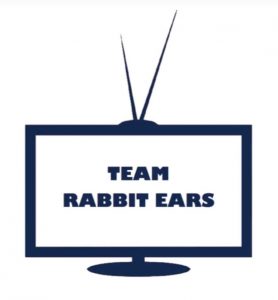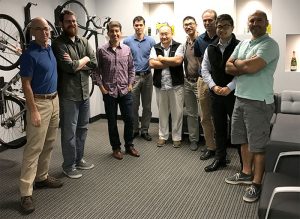 The RFNoC & Vivado HLS Challenge is an open invitation to create innovative and useful open-source RF Network on Chip (RFNoC) applications. The goal was to highlight the productivity of Xilinx Vivado High-Level Synthesis (HLS) design tools using the National Instruments/Ettus Research Universal Software Radio Peripheral (USRP) hardware. The USRP is one of the most successful hardware platforms for software defined radio.
The RFNoC & Vivado HLS Challenge is an open invitation to create innovative and useful open-source RF Network on Chip (RFNoC) applications. The goal was to highlight the productivity of Xilinx Vivado High-Level Synthesis (HLS) design tools using the National Instruments/Ettus Research Universal Software Radio Peripheral (USRP) hardware. The USRP is one of the most successful hardware platforms for software defined radio.
Team Rabbit Ears were up to the challenge. Team members Alireza Khodamoradi (CSE PhD student in our research group), Andrew Lanez (Wireless Embedded Systems MAS Alumni), and Sachin Bharadwaj Sundramurthy (CSE MS student) created an HDTV receiver block. This is able to pick up HDTV broadcast over the air. Have a look at their video below for more details.
They were awarded second place which comes with a complete USRP system from Ettus research and a presentation at the 2017 GNU Radio Conference. If you want all of the details, their work is open-source and is available on the Xilinx github repository.
Congrats to Alireza, Andrew, and Sachin! What a great team spanning multiple graduate programs in CSE!
#gnuradio, #rfnoc, and over-the-air ATSC decoding. Nice work, and great screencasts in this video. https://t.co/1EJCgaWOHW
— GNU Radio Project (@gnuradio) August 4, 2017
